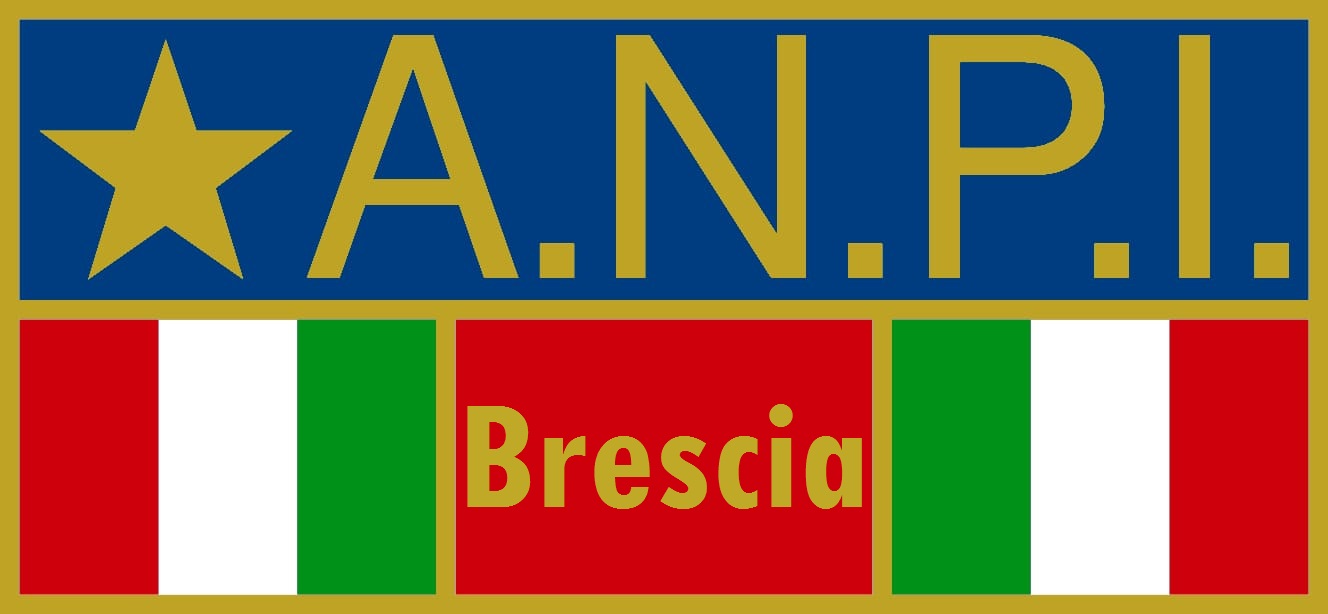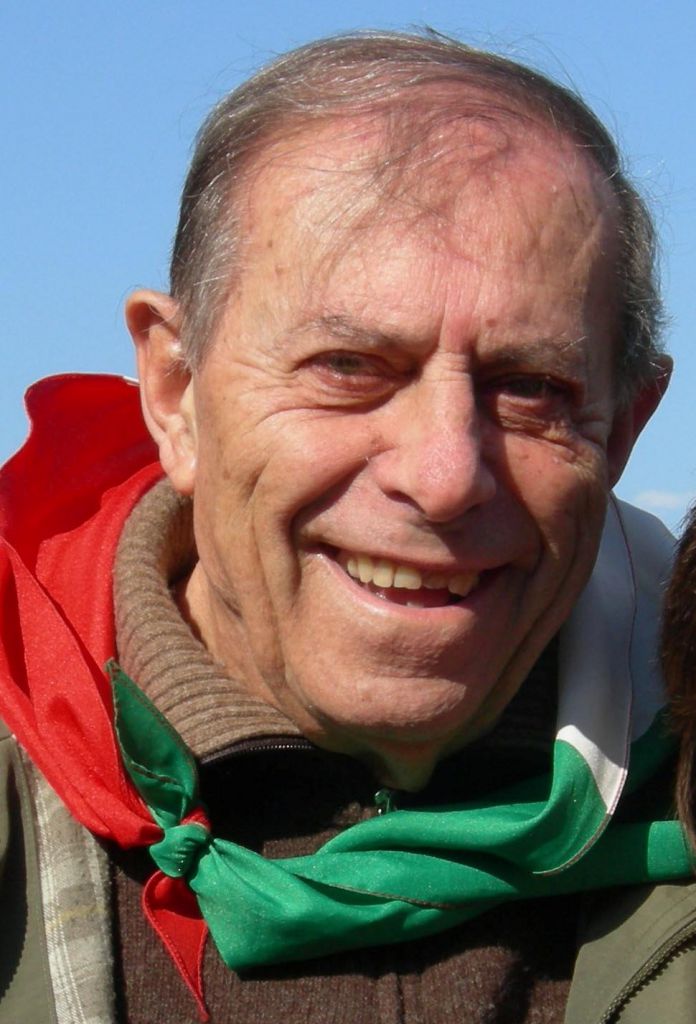Lino Pedroni was only sixteen but he looked older. It was perhaps his height, and strong build, perhaps his gaze, fiery and determined at times, other times grim. Lino set up a FdG branch in his school: they would go out and scatter three-point nails on the roads they knew the German trucks would be travelling on, turn signposts the other way to put them on the wrong path. But it was a prank devised for someone who planned to enlist schoolboys in the RSI army, which brought his file on the desk of the local chief of the Fascist police. The city virtually turned into an anteroom to prison. The mountains were the only way out.
The Brigade second-in-command, Bruno, took Lino with him to make a man of him, as well as a partisan. He was given Modroz as a nom de guerre and was dispatched to ambush enemy trucks carrying weapons or seize conscription lists from the registry office: “Hands up, and face the wall! Give me those lists!”
Lino also learned what to look out for when he was on guard duty: he was trained to scan mountain peaks and valleys with his field glasses, and memorize everything he saw until he was able to point at any spot as requested, with his eyes shut. He’d have to pay careful attention to what women down the valley would signal with the way bed linen was laid on the grass to dry. A single sheet meant a fascist squad, two a platoon, three or more a raiding party. He learned from hunters to gauge if someone was approaching by the flight of the birds. At night, he would carefully listen to the barking coming from chained up dogs: the odd one was fine, but if they followed one another from farm to farm, there were people on the move, and you’d have to raise the alarm.
Words cropped up among his brigade comrades, that he’d never heard before: they spoke freedom, democracy, of the poor that should no longer be poor, of wars that should not be fought, never again. Bruno said that for all the people to be free, and equal, Fascism should be brought down first.
They were camped on Mount Sonclino when Radio London announced Bologna and Florence had been liberated. This brought great excitement, and the smell of victory. Yet this was followed by the Fascists’ backlash, better armed and in great numbers.
The partisans were resisting the attack from six in the morning, flattened against the rocks or down in little hollows, until they began to be threatened by the bush fires started below in the valley by the raiding party. They decided to pull out before the Fascists managed to surround them.
They had lost one man: second-in-command Bruno. The best among them, always worthy of the trust he inspired in his men. Bruno fell before Lino’s eyes, riddled by machine-gun fire. Lino’s grief was awful: Bruno was a friend, as well as his mentor.
Followed by the mortar shells Lino – with the flag of the 122nd Garibaldi Brigade folded and tucked away under his shirt – and seven others made it to the Cavata pass. From there to Vaghezza, to try and regroup.
The Nazi and Fascist raiders captured sixteen men. Eight were immediately shot. Their bodies were left on the ground, and were later found by local women when they went up looking for wood. The others were brutally tortured before execution. Among them was Cesare, a fourteen year old boy: he was found disemboweled, his eyes gouged out. Lino cried and cried; the boy had been put in his care. A dirty job, bearing the hallmarks of the Black Brigades from Idro, those who were known for never making prisoners.
Insurrection was in the air: someone walked up to tell them that the Germans were retreating. The partisans came down and found the square in Bovegno adorned with flags and full of men armed with hunting rifles, ready for the insurrection. A man wearing a tri-coloured neckerchief told Lino to stand on the road and stop all those wishing to leave or enter the town. Pointing his submachine gun, Lino stopped people and handed them to the CLN officers for questioning.
Later, he moved with eight partisans and a dozen insurgents from the town and reached Tavernole, where they took over the German garrison which had been hastily vacated. The pantry was full of all sorts of goodies.
By evening the valley was hit by heavy rain. Lino mounted guard in the graveyard, which dominated a long stretch of road leading to Brescia, drenched to the bone.
What was left of his brigade had just regrouped, when a German lorry came over and the soldiers started firing like mad. They were all made prisoners. OC Tito wanted to execute them. The priest came over, stood in front of the prisoners and pleaded with the partisans: “Spare their lives! The Lord will reward those who show mercy.”
Tito was hesitant. Eventually, with a bit of cursing, he ordered the Nazi soldiers to be locked up in the village school.
The victory march went ahead. As it made its way, the insurgent army kept gaining strength, while the German soldiers disappeared.
They reached Porta Trento, at the gate of Brescia, welcomed by wild sniper gunfire. The partisans advanced carefully, as close as possible to the house walls on both sides of the streets. Women came out on the street to offer them eggs, sugar, sweets. They hugged and kissed Lino, ruffling his long unkempt hair hanging on a red neckerchief and jacket, both torn and tattered. Lino was moved to tears.
But there was no time to loose, as other snipers were firing from the hospital roof and from the church steeple.
They returned fire, then made their way up the steeple. They found themselves fighting six boys like them, trained for bloodshed and violence. They might have been a totally different sort in another situation, but they were murderers, with blood on their hands. They had to die, so that other lives would be saved.
In the afternoon, he ran to Rodengo Saiano, where the Italian and German SS had machine-gunned eleven young men at Villa Fenaroli. This showed that meanness was turning more and more into fear.
What goes around comes around, Lino thought. It was going to be their turn to feel the scary sensation of vengeful eyes – and weapons – aimed at you. Their OC, limping from a steel plate he carried in his leg, tried to run. He was caught and executed.
“The place’s been cleaned up” – Lino said to himself. His teen-age features showed the signs the struggle had left on his face. They were dry, bitter, harsh like those of a boy turned into a man ahead of time.
War had left young people with no other option but to take up arms. A terrible choice, and terrible the last twenty months had been.
Lino sighed, he felt tired but sensed peace. What would the world be like now that everything was over? He would miss being with his comrades, talking about justice, feeling as one with them, eating the same bread, caring for each other. He made up his mind he’d spend the rest of his life working for the cause of justice, freedom and anti-Fascism.
He started singing to himself the song they would strike up around their camp fire. And on Mount Sonclino, just before that tragic battle:
The Germans call us bandits,
the fascists call us rebels,
but we are only brothers,
who want Italy to be free.
Bruna Franceschini
(Translated by Anpibrescia.it)

